
8 things to do if you suspect a medication is causing someone to sleepwalk
By Jason Wooden, PhD | August 14, 2023
Many prescription medications have side effects so it’s no surprise that antidepressants, anti-psychotics, beta-blockers, and some sleep meds have been linked to sleepwalking. You should also check for other factors such as poor sleep, stress, and mental health challenges. Fortunately, there are plenty of remedies you can try for peace of mind and better nights.
When someone sleepwalks and you’re not sure why it’s happening…
It can be unsettling when someone sleepwalks.
While it’s never happened to me, I once struggled with a child who would get up at night and sleepwalk down the hallway.
I recently heard a story about how my friend’s dad who was taking Halcion, a prescription sleep med, would sleepwalk and do strange things at night.
It’s scary enough when someone walks to a downstairs couch, but what about trying to use a knife in the kitchen?
Or leaving the house by foot or attempting to drive a car?
Sleepwalking, also known as somnambulism, is when someone walks or does other complex things while asleep. It’s an unusual state between wakefulness and sleep.
Would you believe as many as 20% of kids 8 to 12 years old and roughly 4% of adults sleepwalk?
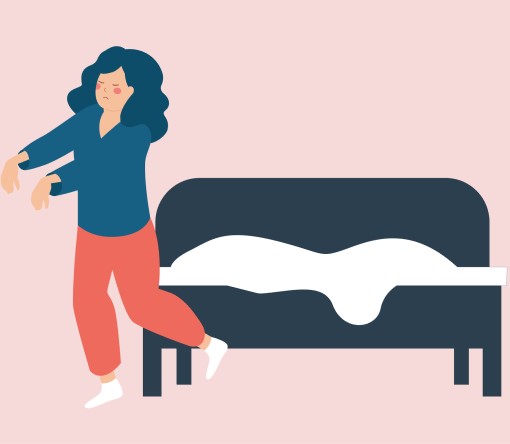
As far as what’s happening, you normally go through different stages which include cycles of non-REM and REM sleep. For reasons not fully understood, a sleepwalkers brain is sometimes triggered to rouse the body while still in a deep sleep.
Nonetheless, whether it’s you or someone you know, sleepwalking can be pretty unnerving WHEN it happens. It can also be frustrating when it’s not so obvious WHY it’s happening.
So, what’s got you thinking a medication is the culprit?
Maybe you only noticed the sleepwalking with start of a new prescription med…
Or perhaps, it’s just something you heard…
Regardless, as crazy as life can get, who needs something else to stress out about?
Let’s take a look at what we know and what you can do about it.
Which medications have been linked to sleepwalking?
The truth is most drugs have sides effects in at least some individuals depending on how you use them. In fact, it’s pretty common for prescription meds to have digestive side effects like constipation and diarrhea.
So, you shouldn’t be surprised that some medications have been found to trigger sleepwalking episodes in people.
It doesn’t mean it’s going to be an issue for all users, just that sleepwalking has been reported for at least SOME individuals.
Some medications that have been linked to sleepwalking include:
Antidepressants
Some brand names: Celexa (citalopram ), Lexapro (escitalopram), Luvox (fluvoxamine), Paxil (paroxetine), Prozac (fluoxetine), Zoloft (sertraline)
How they work: The way antidepressants are thought to improve mood and emotion is by increasing chemicals in the brain such as serotonin and noradrenaline.
Link to sleepwalking: case reports, studies
Antipsychotics
Some brand names: Seroquel (quetiapine) Zyprexa (olanzapine)
How they work: Block the action of dopamine, a neurotransmitter in the brain, or by affecting other signaling chemicals in the brain
Link to sleepwalking: case reports
Beta-blockers
Some brand names: Lopressor and Toprol (metoprolol), Inderal or Hemangeol (propranolol)
How they work: Slow down heart rate and relax blood vessels to lower blood pressure
Link to sleepwalking: Case reports
Sleep medications
Some brand names: Ambien (zolpidem), Lunesta (eszopiclone), Sonata (zaleplon)
How they work: Slow down activity in the brain to promote sleep
Link to sleepwalking: Case reports
In 2019, the FDA added a box warning for risk of serious injuries for some prescription insomnia meds due to sleep behaviors such as sleepwalking, sleep driving, and other activities.
Source: FDA Drug Safety Communication
Medications aren’t the only thing linked to sleepwalking…
Are you sure it’s a prescription med that’s causing the sleepwalking?
At a minimum, there may be other things involved.
While a medication may be at the top of your list of suspects, there are other triggers for sleepwalking you should consider:
Stress and anxiety
Would you believe stress has been found to be a trigger for up to 60% of sleepwalkers? It turns out stress and anxiety are well-known risk factors.
So, it could be there’s something going on that’s got you really stressed out or anxious.
You’re over tired
You’re more likely to sleepwalk if sleep deprived.
And don’t forget there’s a reciprocal relationship between fatigue and stress where one can trigger more of the other.
Mental health challenges
People dealing with challenges such as depression, neurological disorders, obsessive-compulsive disorder, panic attacks, and post-traumatic stress disorder have been found to be more at risk for sleepwalking.
One study found that individuals struggling with depression were 3.5 times more likely to sleepwalk than people who are not depressed.
There’s something going on with your body
It turns out sleepwalking has been linked to a myriad of health issues. The list includes asthma, conditions that affect the brain, fevers in children, heart rhythm problems, heartburn, and sleep disorders such as sleep apnea.
Alcohol consumption
Alcohol consumption is another thing to take a look at, especially if you’re a heavy drinker. Alcohol is known to sometimes trigger sleepwalking episodes.
Even if it’s just a glass of wine to help you fall asleep, alcohol can cause your sleep to be more shallow and less restful. It’s also a risk factor for sleep disorders such as sleep apnea.
What to do if you suspect a medication is causing someone to sleepwalk
If medications and sleepwalking have become an ongoing concern, you should do something sooner rather than later.
Fortunately, there are a variety of things you can do on your own and with the help of others that help manage sleepwalking:
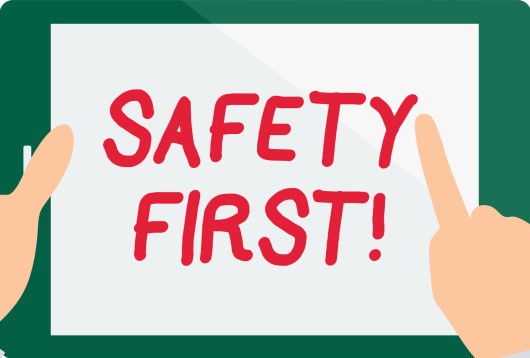
1) Keep everyone safe at night
Start with doing whatever you can to keep the sleepwalker and others safe at night.
Among the things that can help are:
-Making sure all doors and windows are locked
-Keeping the bedroom free of harmful objects
-Keeping dangerous objects in other parts of the home out of reach
-Removing tripping hazards
You may even want to try a sleepwalking prevention device such as the ones listed here.

2) Get help from a doctor
A doctor can check your current medications and recommend adjustments such as a lower dose or a different medication. They can also check for other sleepwalking causes and risk factors.
Your doctor may even refer you to a sleep specialist who can use specialized screening tools such as an EGG and may make additional recommendations.
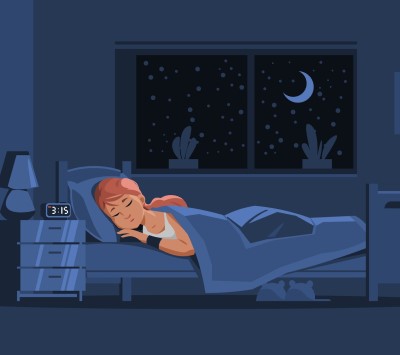
3) Get the best possible sleep you can
I’ve already mentioned how being overtired is a known sleepwalking risk factor. It’s important for sleepwalkers to get the best sleep they can every night.
Start with the basics, sleep hygiene, the everyday things you do that sets the stage for quality sleep:
- Wake up and go to bed at the same time every day
- Physical activity
- Avoid naps
- Avoid large meals, alcohol, and stimulants such as caffeine before bedtime
- Maintain a bedtime routine
- Avoid TVs, laptops, and other electronics near bedtime
- Keep your bedroom dark, cool, quiet, & relaxing

4) Stress management
Since stress and anxiety are a major trigger, it’s important to do everything you can to avoid getting over-stressed. There’s lots you can do to manage stress including lifestyle changes and exercise.
Getting more regular sleep will also help.
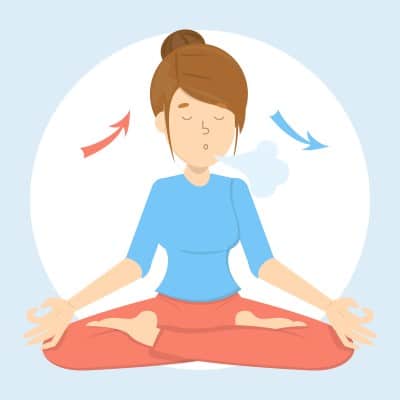
3) Relaxation exercises
Speaking of stress, calming exercises may help with sleepwalking. There’s meditation, deep breathing, visualization, and various other techniques worth a try.
Learn more:
Six relaxation techniques to reduce stress (Harvard Health Publishing)
Relaxation Techniques for Stress Relief (Helpguide.org)

6) Natural relaxation aids
There’s growing evidence that some natural actives can be beneficial for stress, anxiety, and depression. Among the better known ones are lavender essential oils, valerian root, St. John’s wort, and turmeric.
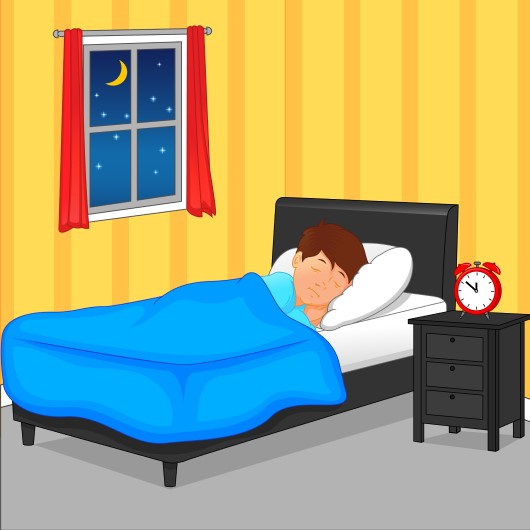
7) Anticipatory awakening
This involves waking up someone about 15 minutes before they usually sleepwalk. The person then stays awake for a few minutes before falling asleep again.

8) Counseling
A mental health professional such as a psychotherapist can help you figure out how to lower stress and anxiety that’s triggering sleepwalking.
Sleepwalking:
5 sleepwalking prevention devices worth a try
Is sleepwalking a sign of something more serious
Is sleepwalking a sign of mental illness?
Can stress cause you to sleepwalk?
Can IBS cause you to sleepwalk?
Can sleeping pills help with sleepwalking?
Can CBD help with sleepwalking?
Sleep disorders:
Sleepwalking, 2023, Sleep Doctor website (Source)
Preventing Sleepwalking: Scientific Findings to Help Stop a Chronic Sleepwalker, 2018, Amerisleep website (Source)
Polysomnographic diagnosis of sleepwalking: effects of sleep deprivation. Ann Neurol. 2008 Apr;63(4):513-9. (Source)
Medication induced sleepwalking: A systematic review. Sleep Med Rev. 2018 Feb;37:105-113. (Source)
Antidepressants, NHS website (Source)
Parasomnias and Antidepressant Therapy: A Review of the Literature. Front Psychiatry. 2011; 2: 71. (Source)
Antipsychotic Medications, Cleveland Clinic website (Source)
Sleepwalking and sleep-related eating associated with atypical antipsychotic medications: Case series and systematic review of literature. General Hospital Psychiatry Volume 65, July–August 2020, Pages 74-81 (Source)
Olanzapine-Induced Somnambulism. Am J Psychiatry. 2001 Jul;158(7):1158. (Source)
Prescription Drugs That May Cause Sleepwalking, 2023, BuzzRx.com (Source)
Metoprolol, oral tablet, 2018, Medical News Today (Source)
Propranolol (Cardiovascular), MedlinePlus (Source)
Is Restless Legs Syndrome Involved in Ambulation Related to Sleepwalking? Sleep. 2016 Apr 1; 39(4): 955–956. (Source)
Lack Of Sleep Can Provoke Sleepwalking, Study Shows, 2008, ScienceDaily (Source)
Sleepwalking More Likely With Several Psychiatric Disorders, 2012, Psychiatry Online (Source)
“Sleepwalking More Likely With Several Psychiatric Disorders”, 2012, Psychiatry Online (Source)
Sleepwalking, 2021, SleepFoundation.org (Source)
Parasomnias: Sleepwalking, Cedars-Sinai website (Source)
Connect with us:
About Us
Better Sleep Simplified® was founded as a place for you to get clear and well-researched information.
Our goal is to make sure you know about your options so that you take action sooner rather than later.
Check us out on YouTube:
Watch and Learn
Helpful sleep tips, interesting sleep facts and statistics you want to know about
Affiliate Disclosure
This site is a participant in the Amazon Services LLC Associates Program and other affiliate advertising programs designed to provide a means for sites to earn advertising fees by advertising and linking to them.
Important: BetterSleepSimplified.com is for informational purposes only and is not intended or implied to be a substitute for professional medical advice, diagnosis, or treatment. Always consult a physician for sleep and health concerns. See additional information.
